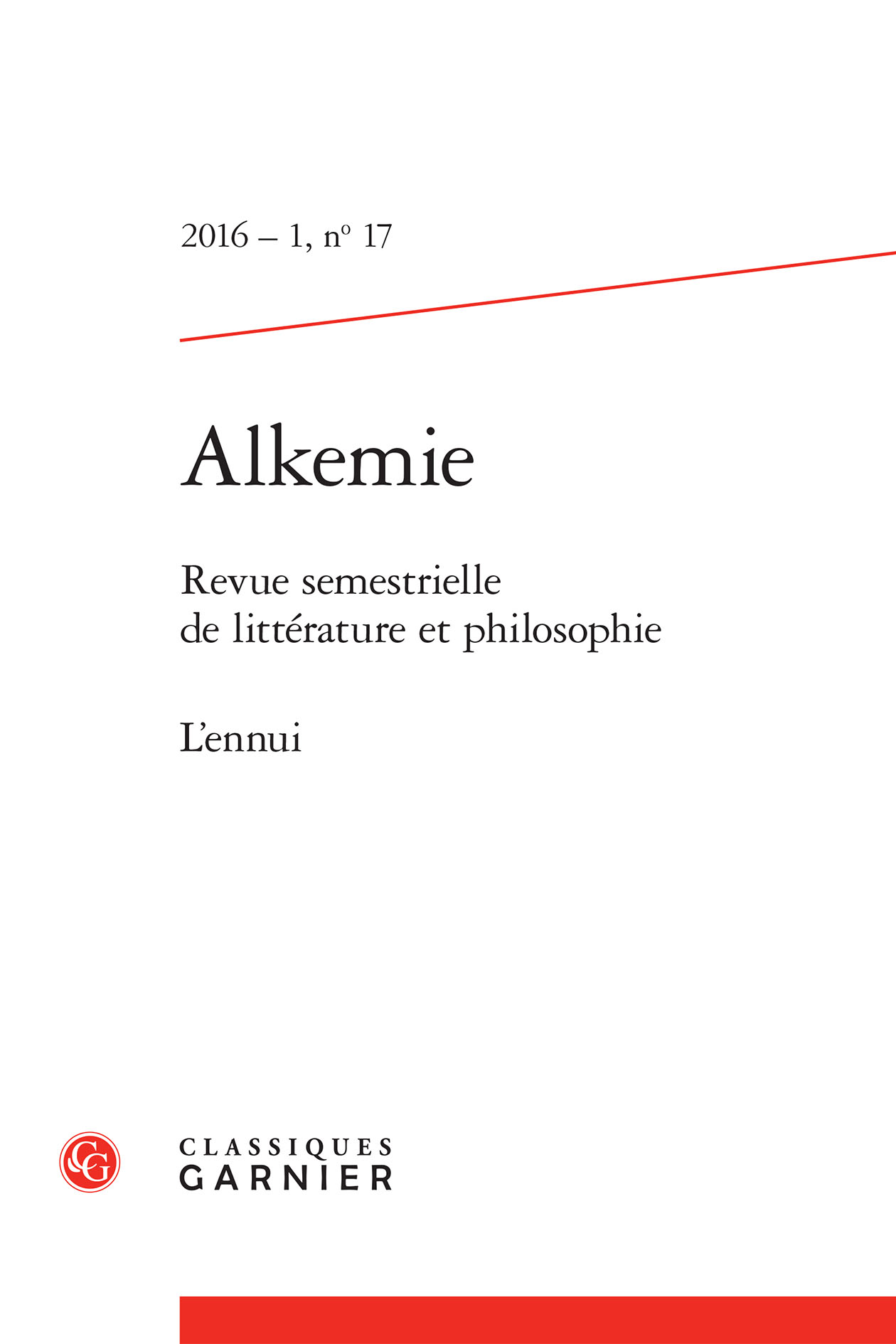Puissances et impuissances sociales de l’ennui
Social powers and weaknesses of boredom
Author(s): Messaouda HamoudiSubject(s): Philosophy, Language and Literature Studies, Literary Texts
Published by: Classiques Garnier
Summary/Abstract: L’ennui peut s’appréhender comme un état conjoncturel, comme une disposition psychologique, une forme d’intériorité mentale, mais il peut aussi s’inscrire dans une perspective qui se saisit de lui comme témoin historique et socio-politique. Depuis le loisir des grecs, où la liberté de ne pas avoir à se soucier des contraintes économiques ouvrait sa place à la contemplation,l’ennui a fini par désigner une vacuité liée à la condition bourgeoise, à la rêverie tranquille ou inquiète. Mais il a, ce qu’on oublie trop facilement, un pendant ouvrier. Il est alors l’indice d’une aliénation, ou d’une dépossession par le travail contraint,qui prive l’ennui de toute référence à une identité assumée ou assumable. Boredom can be understood as a cyclical state, as a psychological disposition, as a form of mental integrity, but it can also be apprehended in a perspective which holds it as bearing witness to historical and socio-political backgrounds. From the Greek leisure time, in which the freedom not to have to worry about economic constraints opened up space for contemplation,boredom has since been used to refer to a vacuity linked to the upper class and its peaceful or concerned daydreaming. But it has a working-class side we forget about too easily. It refers then to a hint of alienation or dispossession by forced labor which deprives boredom from any reference to an identification one takes or can take a pride in.Keywords: boredom, bourgeois romanticism, working class writing, alienation, reappropriation of the word.
Journal: ALKEMIE. Revue semestrielle de littérature et philosophie
- Issue Year: 2016
- Issue No: 17
- Page Range: 195-214
- Page Count: 20
- Language: French
- Content File-PDF

